Most teenagers treasure their sleep-ins, but 22 St Jude’s students prefer to start the weekend soaking up sunshine among a bounty of fruits and vegetables at our Smith Campus shamba (farm).
Between 8.30am-12.00pm most Saturdays, farming tools slice through crisp morning air and the buzz of our chirpy Shamba Club rings across seven acres of lush harvest.
The club was formed in January this year and is overseen by Mr Ernest, the Head of Service at Smith. Students in the Shamba Club help to nourish their peers across our three school campuses.
“The shamba has really helped because we cultivate the vegetables and we are assured of the quality,” Mr Ernest explained.
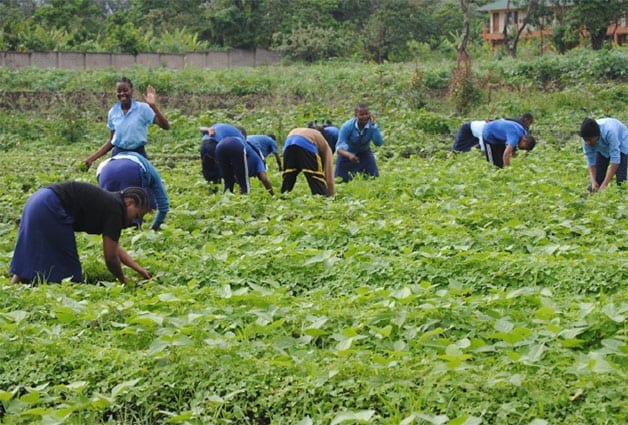
“When we buy the vegetables from outside, we are spending money. So if we are able to produce fruits and vegetables by ourselves, it is a great thing.
We can use what we have.”“We grow eggplant, sukuma wiki (collared greens), cabbages, bananas, sweet potatoes, mangoes and tomatoes and other seasonal fruits and vegetables,” Mr Ernest enthused.
As well as feeding our hardworking school community, students involved with maintaining the shamba attain valuable life skills and learn appreciation for their environment.
Denis in Form 4 helped with weeding on his village shamba, and being part of the St Jude’s Shamba Club has piqued his interest in agriculture.
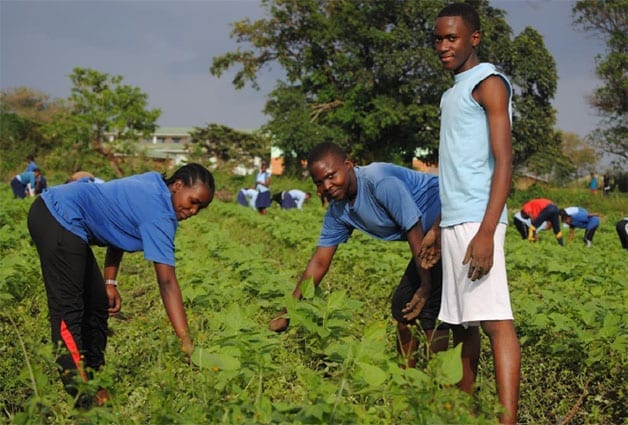
“I feel very happy because we can take what we have planted and nurtured. You have heart to give more and more, so you can get more and more,” Denis said.
“After we have planted and harvested, we give the food to the kitchen and all of us eat it. They distribute produce to Moshono and Moivaro, so we feel proud because we can give to the younger ones. When they grow up, they can see where their veggies were from.”
And it isn’t all hard work for the eager environmentalists; the Shamba Club enjoys their bonding time, too!
“We sing songs to motivate us to do more and more and we don’t get tired or bored quickly. We talk and have fun. You can’t always just be in the class studying. This gives us different activities and we get to know things. Even when we go back to the village, we can have something to work on,” Denis shared.
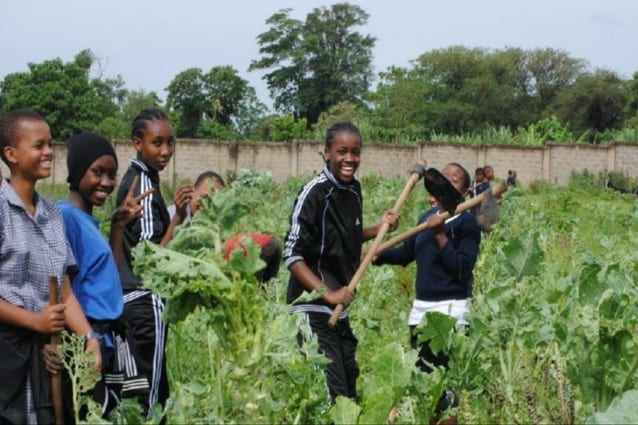
Working on the shamba gives students a chance to serve both their school and local communities. Indeed, the agricultural industry is the backbone of Tanzania’s economy, employing 67% of Tanzanian workers.
“Most of us studying here have shamba back at home, so with these skills we can improve our family farm. Also, we can help different people learn about the techniques of farming,” Denis said.
Importantly, Denis also feels that working on the shamba has heightened his sense of responsibility.
“We live in this environment. If we make it dirty, diseases may rise, so we should be caring and careful of our environment; we are living in it and it’s living with us. We give to it, and it gives to us. You can see our school is beautiful and we want it to stay beautiful.”
Would you like to sample some vegetables from our shamba? Come and visit us!

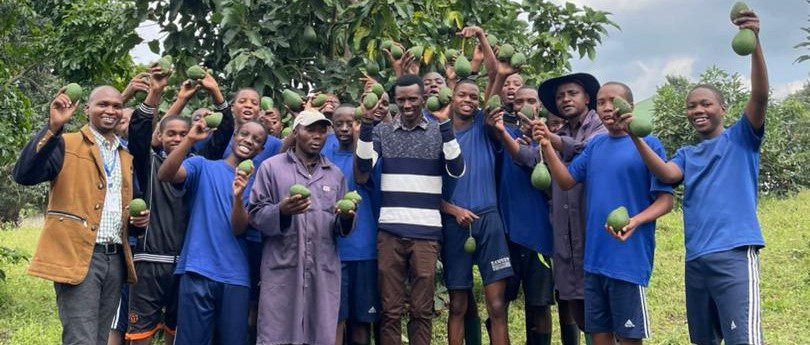





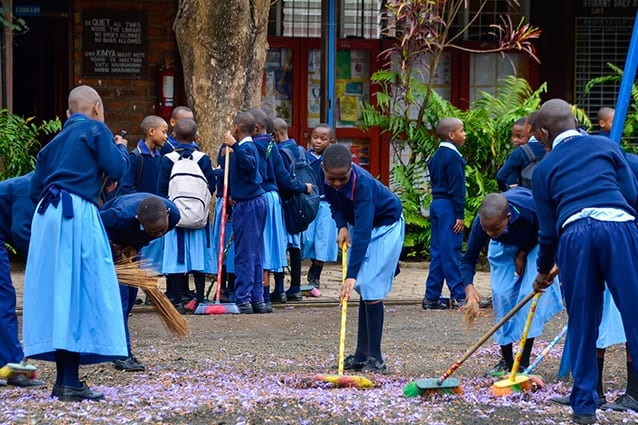

Replies